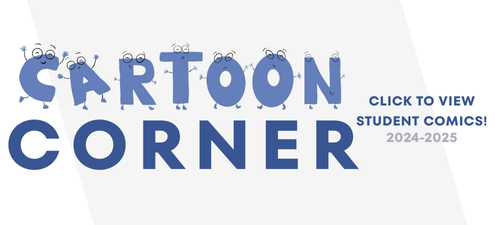The Propaganda Problem
It was 2 am; a sermon came on TV. I watched as Joel Osteen spoke to his church members. He was awkward, fidgety, and couldn’t go a second without blinking, lacking any decorum expected from an orator, yet, he captivated the churchgoers with every word.
In his book, Propaganda and the Ethics of Persuasion, Randal Marlin defines propaganda as an “attempt to shape the thoughts and feelings of others in ways conforming to the aims of the communicator.” By that definition, Osteen’s sermon was propaganda, just not good propaganda.
Many Americans give “propaganda” a negative connotation, viewing attempts to persuade as attempts to mislead and control, endangering their independence. Instead, they flock to what they consider the opposite of manipulative: illogic.
Because of this negative connotation, propaganda has declined in quality. As quality declines, illogical arguments become increasingly persuasive, like Osteen or the anti-vax movement. With the current quality of propaganda, people are not exposed to good propaganda containing logical arguments, becoming used to illogical arguments. Arguments will persuade one way or another, people just happen to be persuaded by arguments in poor quality propaganda. The same groups worried about being manipulated, are persuaded by the worst arguments: conspiracy theories on Facebook.
This decline in quality is largely due to the decline in rhetoric, beginning in the 19th century. Today, the term “rhetoric” is used in reference to divisive language, rather than the art of persuasion. Before I took classes on rhetoric, I knew nothing about it, and the same goes for other Americans.
Rhetoric gives people authority, which helps people to believe arguments—ethos. Knowledge of rhetoric in a population (Romans) meant that better propaganda was necessary to gain authority, not tyrannically, but in order for authority figures to persuade and argue for their policies. Governments need propaganda to function, and just as propaganda isn’t inherently bad, neither is authority. Having strong authority figures can be good for the legitimacy of a government and for the people to have trust in their government—trust earned through persuasion. Today, there is a lack of authority—a lack of people able to persuade with their arguments—as people dislike powerful authorities. Today, the “authority” has no authority. Americans need better propaganda to get work done within the government because, right now, we end up in a stalemate, where no one outside of that political ideology will believe what anyone else says—without better propaganda.
Without knowledge of rhetoric, people become more susceptible to conspiracies and “fake news,” and people can’t recognize good arguments. Bad propaganda doesn’t mean more “truth” will spread—propaganda will always exist—but, more illogic will. Unless we rekindle the teaching of rhetoric, propaganda will remain in its current state, and illogic will dominate our arguments.





























































Randal Marlin • Mar 29, 2022 at 10:23 PM
I came across this by accident, while searching for something else. It’s very nicely written and makes a sound point. Very happy to see this appear in a high school publication, particularly one near Washington D.C, where I was born in 1938.
A further thought: Respect for truth means not omitting saying those things that must be said to avoid misleading people.
Example 1: I saw my bank manager on the street this afternoon, and he was sober (suggesting he’s usually not sober, when actually he’s a teetotaler.)
Example 2: A attacked B (omitting to mention that B attacked A first).